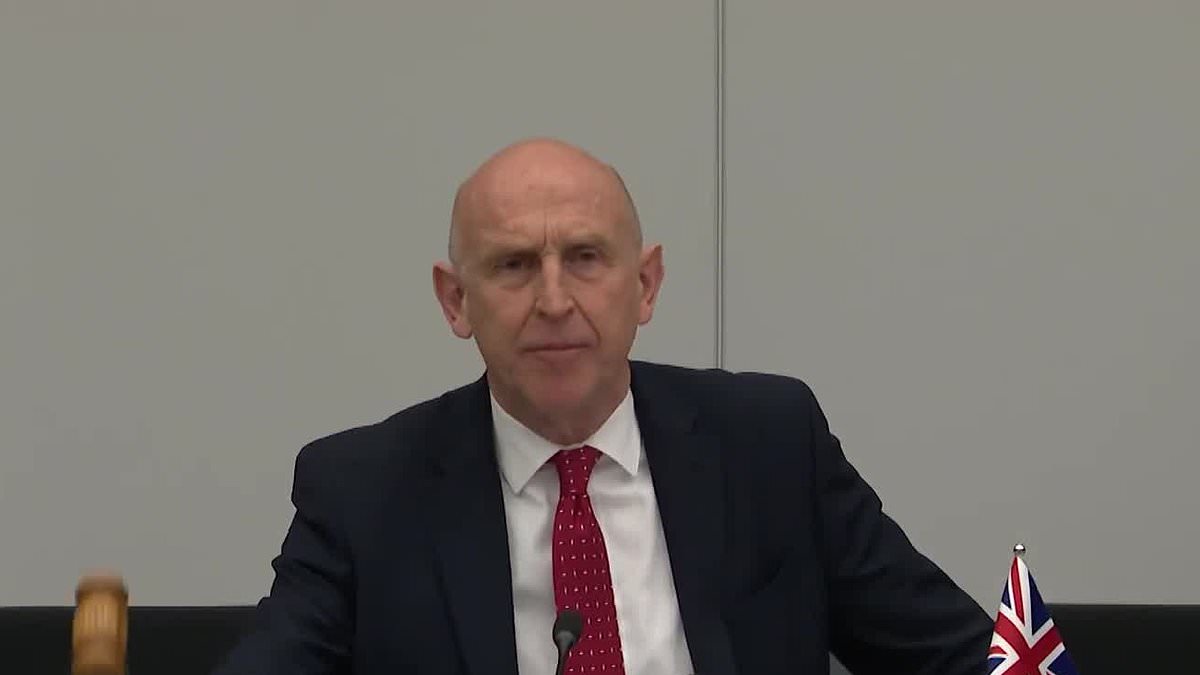Britain is to build hundreds of thousands of drones to be sent to the Ukrainian frontline as part of a £450 million aid package.
UK Defence Secretary John Healey boasted the move would support UK jobs and boost economic growth as well as supporting Ukraine against Russia.
The military drones project was announced as Western allies gathered in Brussels for the Ukraine Defence Contact Group, chaired by the UK and Germany.
As chair of the meeting, the UK has secured ambitious pledges for Ukraine from donor countries.
The talks in the Belgian capital are also a chance for Western allies in the ‘coalition of the willing’ to discuss plans for a post-war peacekeeping force.
Last night, officials said the countries involved in putting together such a force feel a ‘sense of urgency’ – this despite Russia continuing to oppose a peace deal and any Western soldiers being sent to Ukraine to protect a ceasefire.
The drones will be paid for from Britain’s record £4.5 billion military support package for Ukraine and from a donation from Norway.
The contact group consists of 50 nations working together to coordinate their military support for Ukraine, to ensure the fastest delivery of supplies.
Defence Secretary John Healey will chair today’s meeting alongside German Defence Minister Boris Pistorius.
The latest support package includes £160 million to repair and maintain military vehicles, a partnership with British and Ukrainian engineering companies.
Ukraine is also purchasing radar systems, anti-tank mines and anti-drone capabilities from funds secured by the contact group.
The drones being supplied include highly maneuverable first-person view (FPV) drones to attack targets, and drones which can drop explosives on Russian positions.
These types of drones are reported to be responsible for 60-70% of damage currently caused to Russian equipment.
Mr Healey said last night: ‘We cannot jeopardise peace by forgetting the war, which is why today’s major package will surge support to Ukraine’s frontline fight.
‘2025 is the critical year for Ukraine. Our job as defence ministers is to give Ukrainian war fighter what they need. We must step up to deter Russian aggression by continuing to bolster Ukraine’s defences.’
Concerns continue over whether the US will provide any security guarantees for a stabilization force. European allies are particularly dependent on the US to provide air cover, air defence and intelligence capabilities.
Last night, it was reported that the US’s ambassador to Ukraine Bridget Brink intends to resign. She was nominated by former president Joe Biden.
If confirmed, she would be one of the highest-ranking diplomats to leave the State Department since President Trump took office.
In that time he has temporarily cut off the US’s military support, including high tech intelligence assets, and forced Ukraine to sacrifice territory and agree a temporary ceasefire.
The US has also pressured Ukraine in a bid to sign multiple deals over its natural energy resources, seemingly as payback for the US’s military support.
